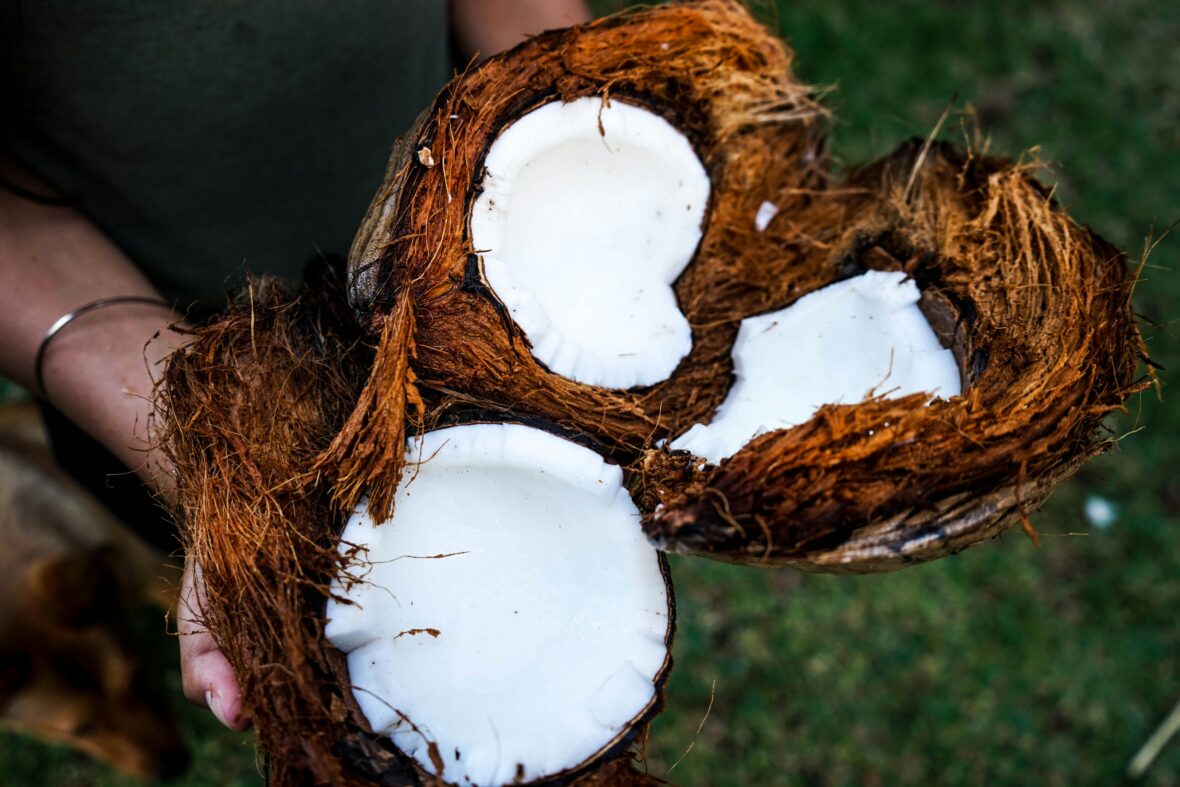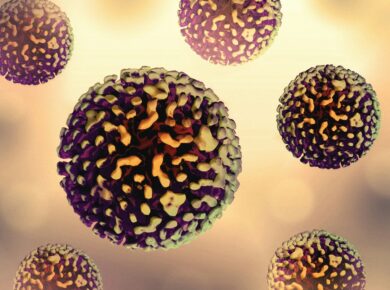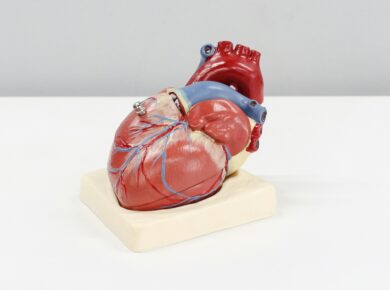Coconut is one of the healthiest foods on earth. The natural products of coconut are: coconut water, coconut meat or kernel, coconut milk, coconut oil, coconut flour, etc. Coconut is good for the immune system.
It strengthens the immune system because it contains antimicrobial lipids, lauric acid, capric acid and caprylic acid, which have antifungal, antibacterial and antiviral properties.
The human body converts lauric acid into monolaurin, which deals with viruses and bacteria that cause diseases like herpes, influenza and cytomegalovirus. It is good to use natural coconut products to achieve a healthy life.
People with health conditions like toothache, chronic ulcer, diabetes, hypertension, cough, urinary tract infections, bedwetting, breast infections, skin infections, snoring, piles, chronic constipation, menstrual disorders, eye problems and other diseases have been healed through the use of coconut products, especially coconut oil.
Natural Products of Coconut
These are beneficial products that come from the coconut. These products play vital roles in human health as listed below:
Coconut Oil
This is usually colourless or pale yellow, extracted from the meat or kernel of mature coconuts harvested from the coconut palm. The typical smell of coconut oil is coconuts if not refined, bleached and deodorised. The oil is a special and beneficial saturated fat, different from other saturated fats.
All fats and oils are composed of molecules called fatty acids. We have two methods of classifying fatty acids. They are monounsaturated fats and polyunsaturated fats.
Another method of classification is based on molecular size or length of the carbon chain within each fatty acid, which consists of long chains of carbon atoms with hydrogen atoms attached.
In this system, there are short-chain fatty acids (SFCA), medium-chain fatty acids (MCFA), and long-chain fatty acids (LCFA). Coconut oil, as one of the coconut products, is good. It is cholesterol-free.
It helps in fighting harmful bacteria as Listeria monocytogenes and Helicobacter pylori, and harmful protozoa, like Giardia lamblia. Daily intake of two tablespoonfuls of coconut oil by adults and topical application of the oil to areas of the body affected by diseases will result in the enjoyment of good health.
Children are also safe to take one baby teaspoonful of the oil daily. Coconut oil can be used for various purposes. It may be for health, beauty and cooking.
The oil has no negative side effects when used. The oil is a special blessing to mankind. The unique thing about coconut oil is that it is healthy, versatile and has many functions. These are the major uses of the oil.
Oral Administration
Adults are safe to take two tablespoons of coconut oil a month, while children above six months may take one teaspoonful of the oil to cure bacterial, viral, fungal and protozoan infections. The oil is better taken early in the morning on an empty stomach or at night close to bedtime.
There are a lot of testimonies from people who have used the oil for acute or chronic illnesses. A trial will convince you.
Topical Application
One may apply coconut oil to the area of the body infected with the disease. It may be repeatedly done to achieve quick healing.
Body Lotion
Coconut oil may be applied to the body after bathing to smooth, moisturise and soften the skin.
Message Therapy
Message is a healing system that involves rhythmic pressing and stretching of the entire body or pulling of fingers, toes or ears and cracking of knuckles. It may be done manually or mechanically.
Coconut oil has medium absorbability and a maximum moisturising level, good for massage. Messaging with the oil may promote relaxation and well-being and may reduce pain in muscles and joints.
Infant Nutrition
Coconut oil is beneficial to people of all ages, including infants and children. A watched mother may offer a small amount of two or three drops of the oil to the mouth of a sick infant once a day to lessen the risk of choking.
At best, a breastfeeding mother may pass the oil to the child through breast milk if she chooses to consume a tablespoonful of the oil, two or three times a day.
Cooking
Coconut oil is an edible oil that may be used for baking and other types of cooking. It may also be used in food preparation and flavouring not involving heat, such as salad dressings and yam dips.
Caution
Coconut oil, when taken in excess, may purge the consumer. In such a situation, one may reduce the volume of consumption.
Coconut Water
The watery fluid in the central cavity of the coconut. Coconut water is the juice inside the interior cavity or endosperm of a young, tender coconut, consumed as a drink and medicine.
The water is sweet, sterile, and composed of unique chemicals like sugars, vitamins, minerals, electrolytes, enzymes, amino acids, cytokines, and phytohormones.
Young and immature coconuts may be gathered from the coconut tree after they reach about 5-7 months of age for the purpose of reaping their juice. Each coconut may contain about 200 to 1,000 mL of water, depending on the type and size.
Any coconut younger than five months tends to be bitter in taste and devoid of nutrients. In contrast, mature coconut contains less water, and their endosperm thickens quickly into white edible meat or kernel.
Insights into Coconut Water
Different species of coconut palms are grown all over the tropics. Naturally, their taste and flavour of water show variations according to saline content in the soil, distance from the seashore, climate, etc.
Coconut water is packed with simple sugars, electrolytes, and minerals to replenish dehydration and conditions in the human body.
Coconut water, like other coconut products, helps in the quick production of quality sperm in men who have low sperm count.
The water is rich in glutamic acid, an amino acid that is important for learning and retaining memory.
It may also help cleanse the body of toxins, waste and unwanted drugs in case of an overdose of a drug or poisoning.
Coconut water may assist one in passing out urine with ease
Coconut water may be given to babies in small amounts to help combat intestinal worms, constipation and other diseases.
Research studies suggest that cytokinins (e.g. kinetin and trans-zeatin) in coconut water found to have significant anti-ageing, anti-carcinogenic, and anti-thrombotic (anti-clot formation) effects.
Coconut water may be offered to patients with diarrhoea or cholera to replace the loss from the gastrointestinal tract to reduce the need for hospitalisation.
The osmolarity of tender coconut water is slightly greater than that of WHO WHO-recommended ORS (Oral Rehydration Therapy) solution.
The presence of other biological constituents like amino acids, enzymes, minerals, and fatty acids may account for this higher osmolarity.
Nonetheless, unlike WHO-ORS, its water is very low in sodium and chlorides, but rich in sugar and amino acids.
Coconut water has a better composition of minerals like calcium, iron, magnesium and zinc than some of the fruit juices like oranges.
It is also a very good source of B-complex vitamins like riboflavin, niacin, thiamine, pyridoxin and folates.
Coconut water carries a very good amount of electrolyte potassium. 100ml of the water has 250mg of potassium and 105mg of sodium.
Fresh coconut water has a small amount of vitamin C (ascorbic acid); it provides about 2.4mg or 4 per cent of RDA. Vitamin C is a water-soluble antioxidant.
Drinking of coconut water may promote cardiovascular health, prevent kidney stones, aid digestion, help with muscle cramps, strengthen bones, reduce bloating, aid weight loss, combat diabetes, lower blood pressure, moisturise skin, treat skin infections, stimulate hair growth and neutralise poison.
Coconut Milk
Coconut milk is the liquid that comes from the grated meat of the coconut, used in foods or as a beverage. It is sometimes called coconut juice.
Coconut Flour
Coconut flour is a gluten-free flour that is essentially dried coconut in powered form. It is made from the coconut solids that are left over after the meat has been used to produce coconut milk. The solids are ground into a very fine, flour-like powder.
The flour is low in carbohydrates and very high in fibre. The flour is good for those suffering from diabetes and other sugar-related diseases, and seekers of good health.
It can be used to bake bread and cake. It may also be mixed with other flours to prepare a meal. Read the similar post on this page.










